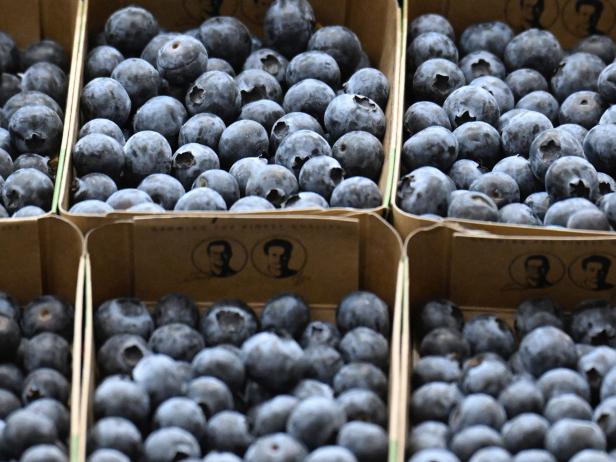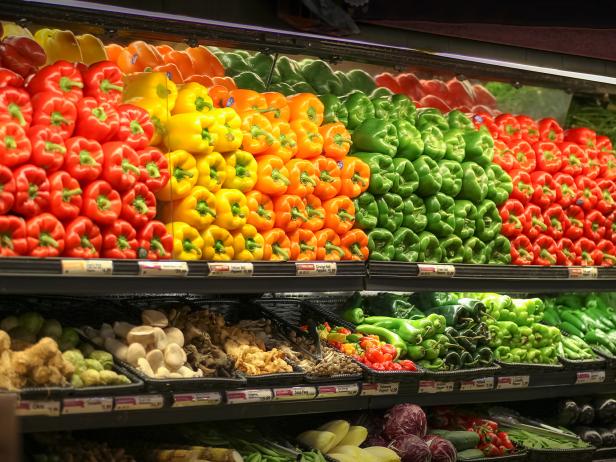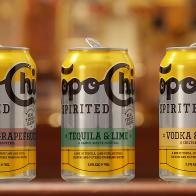Just Eat the Non-Organic Blueberries – Here’s Why You Should Disregard the ‘Dirty Dozen’
Registered dieticians weigh in on whether pesticide residue should deter you from eating conventionally grown fruits and vegetables.

TOBIAS SCHWARZ/Getty Images
Every year the Environmental Working Group (EWG) releases its list of the Dirty Dozen, a group of 12 fruits and vegetables it claims to be contaminated with pesticides. It recommends that if you would like to eat produce off the Dirty Dozen list, you should choose organic. This year, several new foods made an appearance on the list including blueberries (No. 11) and green beans (No. 12). Although this consumer advocacy group believes it’s helping consumers make better choices, the reality is it isn’t. I am a registered dietitian who believes that you should be proud of whatever fruit and vegetables you choose to eat. With 90 percent of Americans not meeting their recommended amounts of vegetables and 85 percent of Americans not meeting fruit recommendations, the benefits of eating produce, whether it’s conventional, organic, ugly or local are plentiful. Below you’ll find five things you should know about the Dirty Dozen list and why you should be filling up your cart with any type of blueberries, green beans and any other fruits and vegetables you choose.
Eat The Non-Organic Blueberries and Green Beans
According to Sylvia Klinger, DBA, MS, RDN, global nutrition communicator, award-winning author and member of the Alliance for Food and Farming Management Board, the fruits and vegetables grown in the U.S. are continually tested for safety. “The U.S. Department of Agriculture’s Pesticide Data Program found that 99.8% of food samples had residues well below the Environmental Protection Agency (EPA) safety levels with over 25% having no detectible residue at all.” Klinger provided a tool to calculate the amount of pesticide residue of common fruits and vegetables found here. According to the calculator, a woman could consume 13,225 servings of blueberries in one day without any effect, even if the blueberries have the highest pesticide residue recorded for blueberries by the USDA.
According to the EWG’s website, its Shopper’s Guide is based on lab tests done by the U.S. Department of Agriculture (USDA) Pesticide Testing Program and the FDA. However, a closer look at the EWG’s report states that “The Shopper’s Guide does not incorporate risk assessment into the calculations. All pesticides are weighted equally, and we do not factor in the levels deemed acceptable by the EPA.”
Stop Worrying About Pesticide Residues
Klinger says that you should absolutely not worry about pesticides in your produce. “The body of scientific research continues to reassure consumers that whether they choose organic or conventional produce, they can eat both with confidence and the right choice is to always eat more for all the great benefits.”
Tamika Sims, PhD, Senior Director of Food Technology Communications at the International Food Information Council (IFIC) explains that a USDA announcement, released in December 2022, examining pesticide residues for a variety of foods noted that “31 years of Pesticide Data Program’s (PDP) residue data represent one of the largest sources of food pesticide residue data available.” The study, conducted annually, concluded that over 99 percent of food has residue levels well below the safety tolerance levels set by the EPA. The EPA sets these tolerances at what it knows are safe levels for human consumption.
Both Sims and Klinger also discussed produce with a thicker skin that you peel before eating, like potatoes or oranges verses strawberries, blueberries and green beans where there is no peeling done before eating. According to Sims, “The skin of a fruit or vegetable can have some impact on the pesticide residue levels one may encounter. However, U.S. regulatory authorities inspect and monitor both conventional and organic berries and other commodities to ensure equal safety.” In addition, Klinger says “according to the FDA, you can reduce and often eliminate residues (if they are present at all) on fresh fruits and vegetables by simply washing them under running tap water.”
Organic Farms Also Use Pesticides
The EPA defines the term pesticide as “any substance or mixture of substances intended for preventing, destroying, repelling, or mitigating any pest.” According to Sims, “Both conventionally grown and organic produce uses pesticides to protect crops from pests. The list of pesticides that can be used for organic produce is different than for conventional, but they are all made up of federally regulated compounds that are designed to kill or repel insects and other pests.” Sims continues and explains, “This means that these substances are designed to rid foods of pests, but are also intended to be a part of our food supply chain system to ultimately yield food we can safely consume after harvesting.” And Sims agrees with Klinger’s recommendation that simply washing your produce with water when you come home from the store, or before you eat it, ensures it’s safe to eat.
Organic farms and ranches that produce crop and animal products are required to stick to the USDA “National List of Allowed and Prohibited Substances.” Sims explains that “this list includes synthetic (man-made or not naturally sourced) substances (including pesticides) that may be used for organic production at the farm level.”
Swapping Out Conventional Produce for Organic Isn’t Necessary
When a consumer advocacy group says you should buy organic because conventional has high levels of pesticides, it can seem concerning. The scary messaging disseminated by this consumer advocacy group certainly has taken a toll on consumers. A peer reviewed study found that the “shoppers’ guides” may be negatively impacting the produce purchasing habits of lower-income shoppers. Researchers surveyed lower-income consumers to learn more about what influences their shopping habits. They found that misleading messaging, which inaccurately describes certain fruits and vegetables as having “higher” pesticide residues, results in lower-income shoppers reporting that they would be less likely to purchase any fruits and vegetables – organic or conventional. So people are missing out on the many health benefits that produce provides, because of inaccurate claims.
In addition, a peer-reviewed study published in the Journal of Toxicology found that the EWG’s suggested substitutions of organic forms of produce for conventional forms didn’t result in any decrease in risk, as residues on conventional produce are so minute, if present at all.

EvergreenPlanet/Getty Images
There Are Health Benefits to All Forms of Produce
90 percent of Americans aren’t meeting fruit and vegetable recommendations. All forms of produce are associated with a multitude of health benefits. Research shows that increasing consumption of produce — both conventional and organic — helps improve health and reduces the risk of chronic disease like cancer, type 2 diabetes and cardiovascular disease.
Related Content:

































